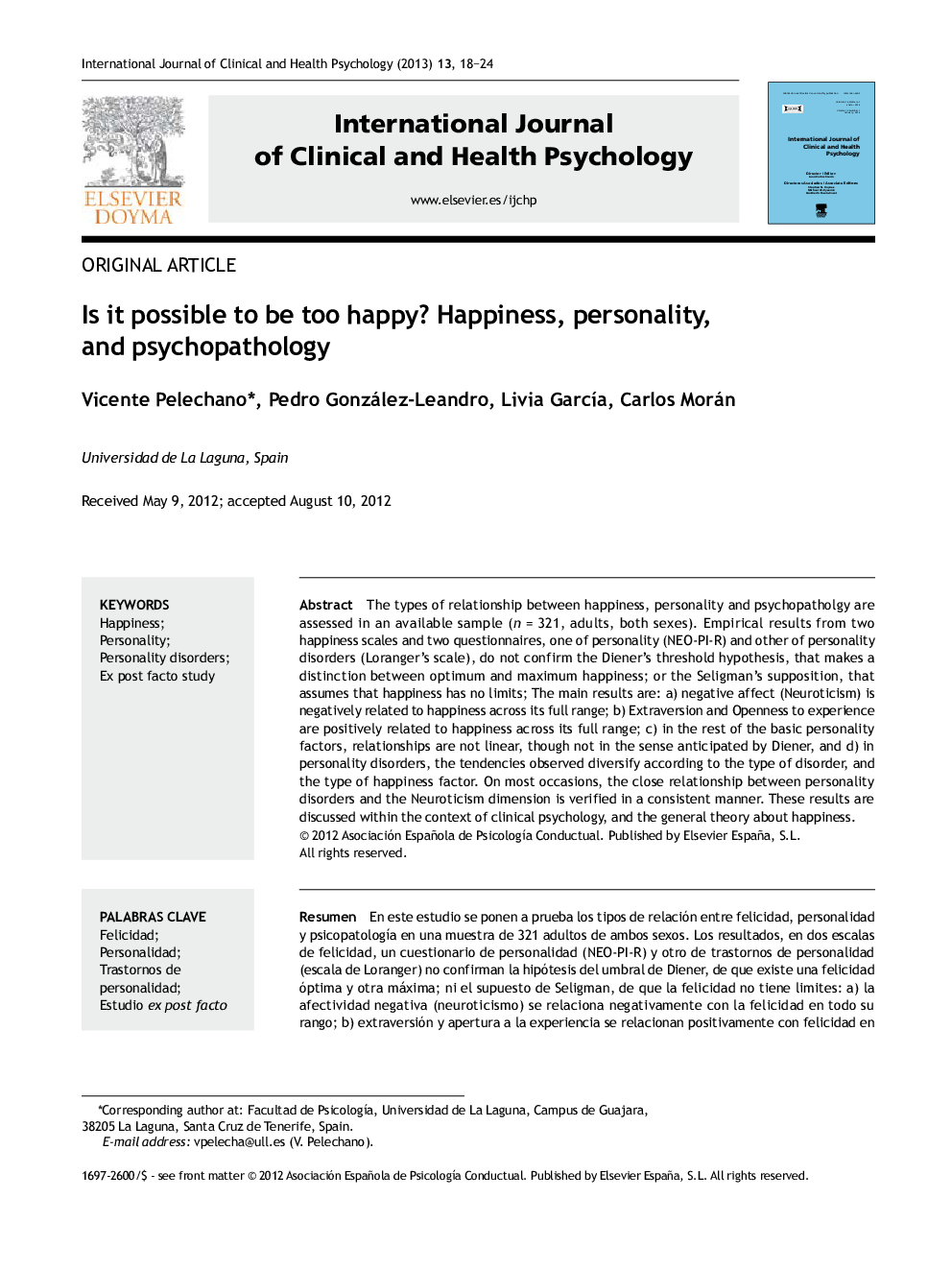| کد مقاله | کد نشریه | سال انتشار | مقاله انگلیسی | نسخه تمام متن |
|---|---|---|---|---|
| 879990 | 1471352 | 2013 | 7 صفحه PDF | دانلود رایگان |

The types of relationship between happiness, personality and psychopatholgy are assessed in an available sample (n = 321, adults, both sexes). Empirical results from two happiness scales and two questionnaires, one of personality (NEO-PI-R) and other of personality disorders (Loranger's scale), do not confirm the Diener's threshold hypothesis, that makes a distinction between optimum and maximum happiness; or the Seligman's supposition, that assumes that happiness has no limits; The main results are: a) negative affect (Neuroticism) is negatively related to happiness across its full range; b) Extraversion and Openness to experience are positively related to happiness across its full range; c) in the rest of the basic personality factors, relationships are not linear, though not in the sense anticipated by Diener, and d) in personality disorders, the tendencies observed diversify according to the type of disorder, and the type of happiness factor. On most occasions, the close relationship between personality disorders and the Neuroticism dimension is verified in a consistent manner. These results are discussed within the context of clinical psychology, and the general theory about happiness.
ResumenEn este estudio se ponen a prueba los tipos de relación entre felicidad, personalidad y psicopatología en una muestra de 321 adultos de ambos sexos. Los resultados, en dos escalas de felicidad, un cuestionario de personalidad (NEO-PI-R) y otro de trastornos de personalidad (escala de Loranger) no confirman la hipótesis del umbral de Diener, de que existe una felicidad óptima y otra máxima; ni el supuesto de Seligman, de que la felicidad no tiene limites: a) la afectividad negativa (neuroticismo) se relaciona negativamente con la felicidad en todo su rango; b) extraversión y apertura a la experiencia se relacionan positivamente con felicidad en todo su rango; c) en el resto de factores básicos de personalidad las relaciones son no lineales, aunque no en el sentido previsto por Diener; d) en los trastornos de personalidad las tendencias se diversifican por el tipo de trastorno y tipo de factor de felicidad, aunque se contrasta en la mayoría de las ocasiones el compromiso de los trastornos de personalidad con la dimensión de neuroticismo de manera coherente. Se discuten estos resultados en el contexto de la clínica psicológica y la teoría general sobre la felicidad.
Journal: International Journal of Clinical and Health Psychology - Volume 13, Issue 1, January 2013, Pages 18-24